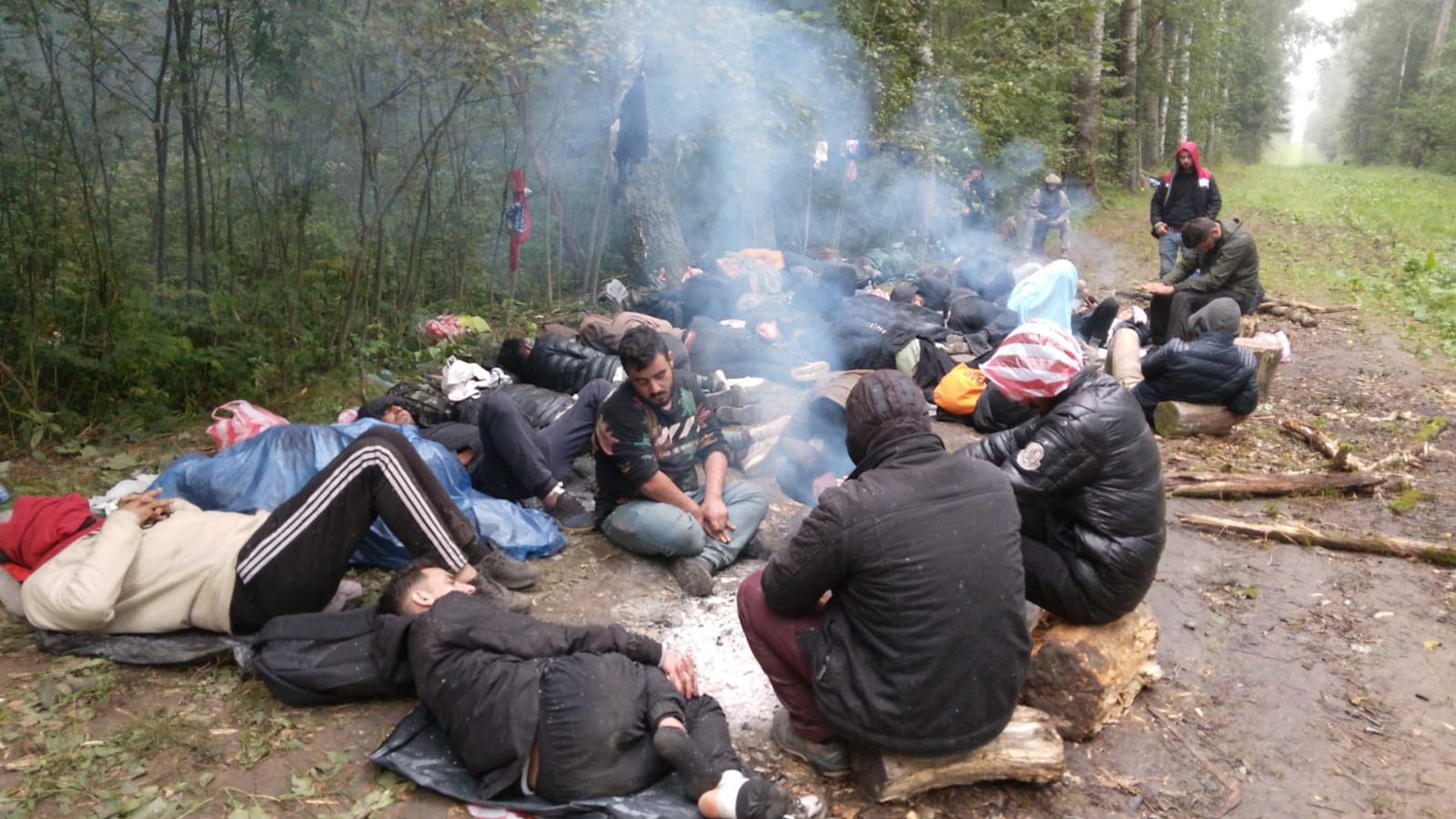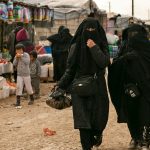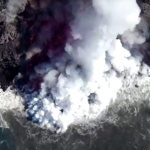The messages are increasingly desperate. “Please help us because we are so hurt, we are broken”.
“We are scared to go on to Latvia now and we are scared to go back to Belarus because they both don’t accept us”.
We met Abdullah two weeks ago in the Belarusian capital, Minsk. He was from Iraqi Kurdistan and was trying to find a way to get to an EU border, any border.
He had a tourist visa issued by the Belarusian authorities and he had heard that Minsk was the new gateway to the EU.
Now he is sending videos from a patch of no man’s land between Belarus and Latvia begging for help.
Technically he is in Latvia, as it is just across the bare strip of earth which separates the two countries, but the Latvian border guard won’t let the group go further.
There are 41 of them – women and small children too – and they are all bedraggled and forlorn.
When it rains, which it seems to a lot, they cover themselves in bin-liners. At night they light fires to keep warm.
On day nine, the Latvians came to take families with children under three to camps. The rest are stuck.
On one side, the Latvian border guard stands watch, on the other the Belarusian. The Latvians won’t let them in and the Belarusians won’t allow them back.
These people were fed a lie. They were provided with tourist visas by the Belarusian authorities and encouraged to believe that Belarus was their sure-fire route into the EU.
Sadly for them though, it isn’t. Not for Iraqis seeking a better life, sold up back home and duped into believing that this way they’d get into Europe without the hazards of a boat crossing.
Abdullah’s group are not the only ones in limbo. There are others groups along this border and the one with Poland too.
Lithuania cottoned on first. In the past two months, it has taken in more than 4,000 migrants, mostly from Iraq and Kurdistan where the Belarusians seem to have dispensed of their visas with the greatest alacrity.
Now those migrants sit in camps at the border. They still believe this is just another step in the road to EU admission. So far, of the several hundred asylum requests processed, not a single one has been granted.
Outside Minsk’s cheaper-end hotels, the migrants are easy enough to spot. The men focused on their mobile phones wondering which border to head for, the women huddled around suitcases and plastic bags filled with provisions.
Children sit wide-eyed and quiet, soaking up the grown ups’ anxiety.
They realise they’ve slightly missed the boat, now EU authorities have strengthened their defences.
They’re faced with a choice – to fly home in empty planes laid on by the Iraqi authorities, or to struggle on in the hope they find a chink in the EU’s armour. No one we speak to wants a ride home.
“If you have a chance to leave Iraq, of course you will. Even if you have a 1% chance to go you will try,” says Ali from Baghdad.
In May, Belarus’s erratic leader Alexander Lukashenko threatened to flood the EU with drugs and migrants if the bloc imposed sanctions in response to the forced landing of a Ryanair flight over Belarus and the arrest of a dissident journalist on board.
Please use Chrome browser for a more accessible video player
The EU did and Mr Lukashenko has made good on his word. “These are the conditions you impose on us and we have to find a response,” he said at a conference earlier this month.
Belarus denies accusations it is facilitating the transfer of migrants across the border into the neighbouring EU countries.
“This is a vivid example of double standards,” says Roman Podlynev, deputy head of the State Border Committee.
“The Lithuanians will not help people escaping hunger and war in their homelands, but they are happy to provide refuge to Belarusians.”
The migrants we speak to have some inkling that President Lukashenko is called a dictator by the West but his soviet-style repressions aren’t immediately noticeable on the sunny streets of Minsk.
They know nothing of the thousands of Belarusians who felt so unsafe in Belarus that they fled to Poland, Lithuania and Ukraine rather than be jailed by the regime.
They certainly have no idea that they are also the unwitting victims of Mr Lukashenko’s schemes.
It is not only Iraqis. There are Iranians, Congolese, Afghans and a host of others too. What was a stream of migrants through Belarus a few weeks ago has slowed to a trickle – a hiatus but perhaps only temporary.
Europe is bracing itself for what promises to be a surge in Afghan refugees. The bloc fears a re-run of the migrant crisis of 2014. It wants at the very least an orderly, coordinated response.
Alexander Lukashenko does not care in the slightest about the plight of Afghan refugees. He does not care about the Kurds or Iraqis his state-run tourism agencies made false promises to.
Please use Chrome browser for a more accessible video player
He cares about payback for EU sanctions. He believes, wrongly, that the internal resistance to his rule is generated by the West. In his own words, he will use whatever tools are at his disposal.
As the EU formulates a strategy, it knows it has a wild card on its eastern flank looking for any which way he can find to cause trouble. A leader who is prepared to use migrants as a weapon in his power games with the West.
And people like Abdullah stuck at the border have very little idea that they might be there for months to come – or that in the meantime, a crisis has erupted in Afghanistan which means that for the EU, their situation is all but forgotten.
A life in limbo on the sodden earth of the Belarusian border with Europe, calling desperately for help alongside a clamour of appeals from parts of the world that resonate louder.
How long will they stay there? No one knows.






















